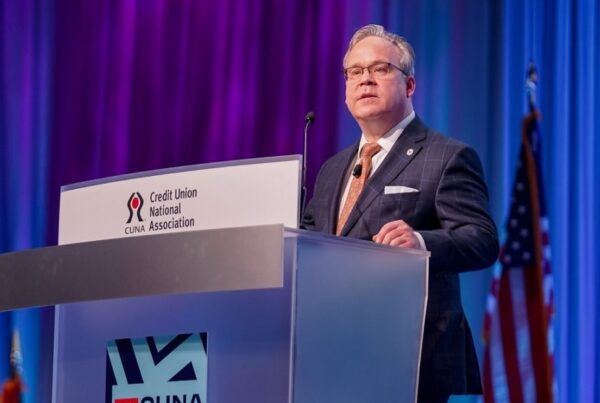The New Year has arrived and credit union executives across the country have prepared new financial wellness goals, strategies, and resolutions for continued growth and financial health in 2020 and beyond.
Burgeoning and innovative tech has changed how credit unions offer products and services, including the introduction of remote customer service via video conferencing for online customers. In 2020, the credit union industry will witness growth, particularly in the area of digitally automated services that relieve time-consuming and manual decision making like auto, mortgage or personal lending decisions, or fraud detection.
Perhaps the most important long-term point of emphasis is getting back to the basics of financial literacy for their communities’ financial wellness. Despite America’s economic growth during the last decade, families are struggling with debt, accompanied by stagnating wages versus rising inflation, leading to poor financial health.
We continue to believe credit unions remain the perfect local vehicle with which to provide financial support and education for hardworking Americans to improve financial health. In that spirit, we offer three 2020 new year resolutions for credit union executives designed to increase their communities’ financial wellness.
Resolution #1 — Commit To Communication With Members To Improve Financial Health
With President Franklin D. Roosevelt’s signing of the Federal Credit Union Act in 1934, credit unions were by nature designed to promote prudence, economy, care, and consistent financial literacy when it came to doing what is best for individuals and their families. Statistics show Americans need this help to improve their financial health now.
CareerBuilder’s 2019 statistic found 78% of all Americans live paycheck to paycheck. That statistic is not relegated to the middle and lower classes. Ten percent of workers earning $100,000 or more also live paycheck to paycheck. Twenty-eight percent of workers making $50,000-$99,000 deal with the same issue.
In a 2014 Consumer Financial Literacy survey, only about 2 in 5 adults have a budget and keep track of their spending habits. Additionally, 75 percent of respondents said they could benefit from advice and answers to everyday financial questions from a professional.
Credit unions are perfectly positioned to do something by taking advantage of the contemporary off- and online tools available. Confidence in CUs and their staff is high; 64% of credit union members believe community-oriented financial institutions provide better customer service than national financial institutions. This is because credit unions look to serve their membership at every turn and have the added advantage of being more flexible in assisting with CU member financial health needs and requirements. And that includes utilizing all accessible member service communications channels. Digital marketing assets like social media, dynamic websites, and email newsletters are crucial channels to keep credit union members top of mind and engaged.

Resolution #2 — Offer A Small Dollar Loan Program As A First Step To Financial Health
The journey back to financial literacy and health for the underbanked and unbanked often begins with access to some form of short-term credit. It’s difficult to concentrate on one’s financial wellness objectives if they’re still sweating over paying overdue bills. Financial stress and panic can easily take them off their game as they struggle with financial health.
In May 2018 Joseph Otting, Comptroller of the Currency, sent a letter to credit unions urging them to provide short term, small dollar loan installments to credit union members.
Resolution #3 — Offer A Financial Wellness App Based On Cognitive Behavioral Therapy
In the 2010s, financial technology (fintech) firms fundamentally changed the way credit unions are able to provide information, banking options, and the tools for consumers and members to interact, organize, or make changes to their personal finances. New innovations benefit both credit unions and their members by expanding access to financial services, including financial literacy and wellness apps designed to help people take control over their spending and budgeting habits, resulting in better financial health.
The truth is, 17% of Americans are financially vulnerable, while 46% don’t have emergency funds available to cover a $400 financial emergency. Tools can do little if financial literacy is lacking, particularly when 33% of American adults have no money saved for retirement.
QCash Financial’s Financial Wellness App Can Help
Fintech solutions in financial literacy and wellness are designed to help strengthen the financial wellness future of families and the communities in which they live by being available wherever they are. Digital apps such as QCash Financial’s recently released financial wellness app will help your credit union members achieve financial health stability and resilience by utilizing the principles of cognitive behavioral therapy and behavioral economics. The app provides real-time feedback and one-on-one financial coaching. For more information on QCash Financial’s lending and financial wellness app, click here or send an e-mail to info@qcashfinancial.com. We look forward to speaking with you and Happy New Year!






